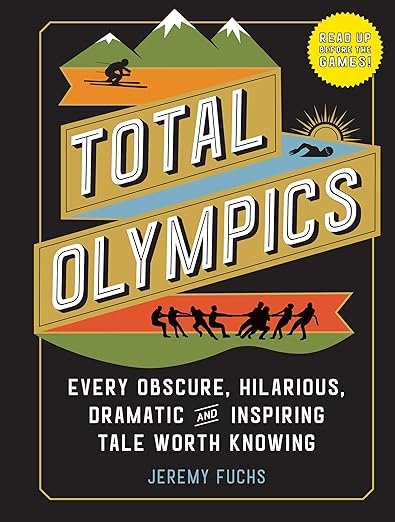Contents
Every four years, the world comes together in a grand celebration of sportsmanship, athleticism, and international unity known as the Olympic Games. This extraordinary event has a rich history dating back to ancient Greece and has since evolved into a global extravaganza. In this blog, we will explore the Olympics, its significance, and some remarkable moments from its storied past.

The Origins of the Olympics
The Olympic Games can trace their roots back to ancient Greece in the 8th century BCE. Held in the sacred city of Olympia, these early Olympics featured athletic competitions, including running, long jump, and discus. Participants from various Greek city-states would converge to compete, and the winners were celebrated as heroes in their hometowns.
Modern Olympics
The modern Olympic Games, as we know them today, were revived in 1896 by Pierre de Coubertin, a French educator and sports enthusiast. The inaugural modern Olympics took place in Athens, Greece, and featured 13 countries and 241 athletes. Since then, the Games have grown exponentially, both in terms of the number of sports and participating nations.
The Olympics Today
Today, the Olympics encompass a wide range of sports, from traditional disciplines like athletics, swimming, and gymnastics to newer additions like skateboarding and surfing. The Summer and Winter Olympics alternate every two years, providing a diverse showcase of human athleticism and skill.
Top 10 Best Sportsman In the Olympics
- Michael Phelps (Swimming, United States): With 23 gold medals and 28 overall, Phelps is the most decorated Olympian in history, known for his exceptional versatility and dominance in swimming.
- Usain Bolt (Athletics, Jamaica): The fastest man on Earth, Bolt holds multiple world records and has won 8 Olympic gold medals in sprinting events.
- Carl Lewis (Athletics, United States): Lewis is a track and field legend, winning 9 Olympic gold medals in events like the 100m, 200m, long jump, and relays.
- Paavo Nurmi (Athletics, Finland): Nurmi, often called the “Flying Finn,” won 9 gold and 3 silver medals in middle-distance and long-distance running events during the 1920s.
- Larisa Latynina (Gymnastics, Soviet Union): Latynina is one of the most successful Olympic gymnasts, with 18 total medals (9 gold, 5 silver, 4 bronze) across three Olympic Games.
- Nadia Comăneci (Gymnastics, Romania): Comăneci achieved perfection, scoring the first-ever perfect 10 in gymnastics at the 1976 Olympics and winning 9 Olympic medals.
- Jesse Owens (Athletics, United States): Owens defied Nazi ideology by winning 4 gold medals in sprint and long jump events during the 1936 Berlin Olympics.
- Bjørn Daehlie (Cross-Country Skiing, Norway): Daehlie is the most successful Winter Olympian, with 12 medals (8 gold, 4 silver) in cross-country skiing.
- Nikolai Andrianov (Gymnastics, Soviet Union): Andrianov won a total of 15 Olympic medals (7 gold, 5 silver, 3 bronze) in gymnastics during the 1970s.
- Mark Spitz (Swimming, United States): Spitz was a dominant swimmer in the 1972 Munich Olympics, winning 7 gold medals and setting multiple world records.
Please note that this list is not exhaustive, and there are many other exceptional Olympians who have left an indelible mark on the Games. Additionally, some sportsmen may excel in team sports or less widely recognized Olympic events, which might not be reflected in this list. Olympic greatness can be defined in various ways, including not only medal counts but also the impact and legacy an athlete leaves on their sport and the Olympic movement.
Significance of the Olympics
- International Unity: The Olympics are a symbol of global unity, bringing together athletes and spectators from all corners of the world. It’s a time when political and cultural differences take a backseat to the spirit of competition and cooperation.
- Inspiration: The Games inspire individuals to push their limits and strive for excellence. Athletes dedicate years of their lives to training and competing on the Olympic stage, setting an example of dedication and perseverance for us all.
- Cultural Exchange: The Olympics offer a unique opportunity for cultural exchange. Athletes, coaches, and fans from different nations come together, sharing their traditions, foods, and stories.
Memorable Moments
- Jesse Owens’ Triumph (1936): In the face of Adolf Hitler’s Nazi regime, American sprinter Jesse Owens won four gold medals, disproving the notion of Aryan supremacy.
- The Miracle on Ice (1980): The underdog U.S. ice hockey team defeated the heavily favored Soviet Union in a stunning upset during the Winter Olympics in Lake Placid.
- Usain Bolt’s Dominance (2008, 2012, 2016): Jamaican sprinter Usain Bolt became a legend, breaking world records and winning multiple gold medals in the 100m and 200m sprints.
- Simone Biles’ Gravity-Defying Feats (2021): American gymnast Simone Biles stunned the world with her incredible skills, showcasing the importance of mental health and self-care for athletes.
Conclusion
The Olympic Games continue to captivate and inspire people worldwide. They are a testament to the power of human determination, excellence, and unity. As we look forward to future editions of the Olympics, let us celebrate the athletes and the values they represent, reminding us that with dedication and cooperation, we can achieve greatness on a global scale.
Want to read more blogs? Go here:lb sport reviews
Want to buy the olympics book? Go here:Total Olympics



